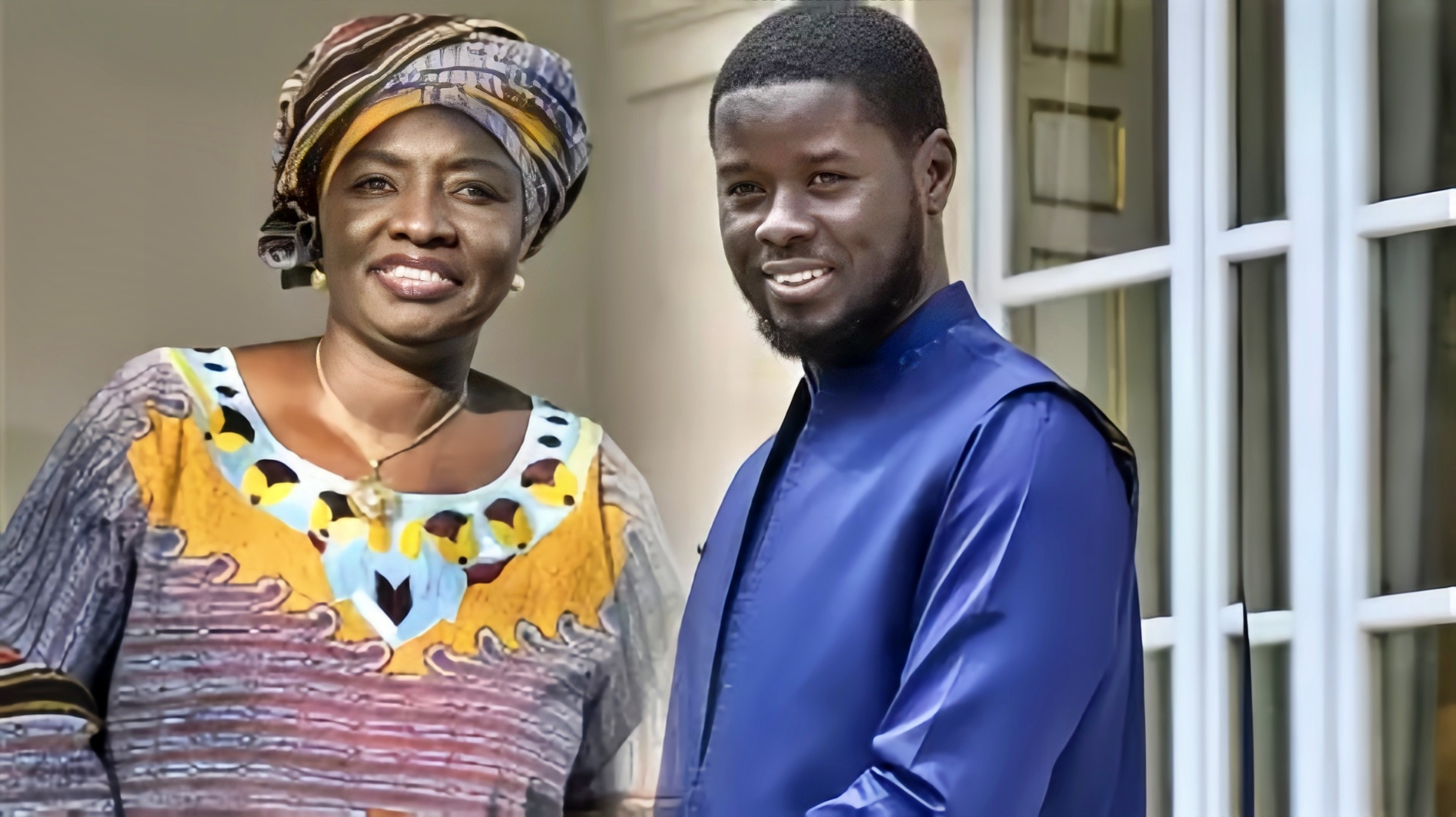Gambiaj.com – (DAKAR, Senegal) – President Bassirou Diomaye Diakhar Faye has moved to reassert his leadership within the governing coalition, appointing former Prime Minister Aminata “Mimi” Touré to spearhead the restructuring of the Coalition Diomaye Président, a decision that places him in direct tension with his political mentor and current Prime Minister, Ousmane Sonko.
The announcement, made in a letter on November 11, 2025, confirmed the end of Aïda Mbodj’s mission, which the President said he had communicated as early as September.
While acknowledging Mbodj’s contribution to the 2024 electoral victory, Faye said the coalition had become marked by “lethargy and divisive factors” and required new leadership to become “more operational, better structured, and fully effective.”
By turning to Touré, who supervised his presidential campaign, Faye signaled a preference for political experience and organizational stability as he seeks to strengthen his governing base.
The Sonko–Touré Fault Line and Reorganization at the Heart of the Coalition
The appointment immediately reignited tensions between President Faye and Prime Minister Ousmane Sonko.
Days earlier at his Téra-meeting in Dakar, Sonko had implied that Touré was linked to a CFA 2 billion embezzlement case from her tenure at the Economic, Social and Environmental Council—an accusation Touré forcefully denied.
She went so far as to request a public hearing before national and international media to settle the matter.
This confrontation was more than a personal dispute. For Sonko and many within the Pastef base, Mimi Touré symbolizes the old political establishment they fought to dismantle.
Her return to a strategic role in the governing structure challenges the ideological identity of the movement and raises questions about the direction the revolution-born leadership is now taking.
A Test of Authority With Implications for Governance and Stability
The episode marks the clearest moment to date in which President Faye has asserted strategic autonomy from Sonko.
Though Sonko is the Prime Minister, he remains the figure who commands the loyalty of Pastef’s grassroots networks, communications infrastructure, and mobilization power.
Faye, meanwhile, occupies the presidency and embodies the institutional continuity of the state. Their partnership, once seen as seamless and indivisible, now appears to be negotiating its first major fracture.
The President’s insistence on bringing Touré into the coalition leadership signals a turn toward executive pragmatism and broader political coalition-building. Sonko, rooted in activist political identity, views such compromises as dilutions of the founding struggle.
This silent struggle at the top of power could have direct consequences for government stability. If strategic decisions continue to reflect divergent instincts, one toward institutional inclusion and the other toward ideological purity, coordination between the presidency and the prime ministry may weaken.
Ministers, advisers, and coalition partners could begin aligning with one side of authority over the other, slowing decision-making and producing contradictory political messaging.
More significantly, if Sonko chooses to distance Pastef from the coalition or to limit its operational cooperation, the President could find himself with state authority but without the movement-based mobilizing force that secured his rise to power.
A Companionship Under Its Hardest Strain
For years, Bassirou Diomaye Faye and Ousmane Sonko projected unity forged in struggle through opposition campaigns, courtrooms, and prison cells. Their bond was the foundation of a political movement that reshaped Senegal’s political landscape in 2024.
Today, that bond is being tested not by external enemies, but by the challenge of governing a country and managing a broad coalition with differing expectations. Whether this moment becomes an adjustment in roles or the beginning of a deeper political rupture is still unclear.
What is certain is that Senegal is witnessing the first visible shift in the balance of power between its President and his Prime Minister, and the outcome may shape the trajectory of the government for months to come.











One Response
The justice department should act swiftly to have all accusations of corruption, embezzlement by any current or former member of the past two regimes fully investigated and punished to the full extent of the law. Serious accusations such as Sonko lodged agains Aminata (Mimi) cannot be settled publicly; her suggestions simply seeks distract the masses. Additionally, experience does not necessarily assure competence. Mimi is linked to serious mismanagement cases that ought to disqualify her from holding any position in any government.
President Diomaye Faye ought to be carefully how he deals his cards. Ousmane Sonko is the man the people trust. Any wrong turn could upset the revolution and turn abort the current path to progress and stability–to the delight of the imperialist forces and corrupt elite that has been sleepless since its 70-year era of impunity ended.